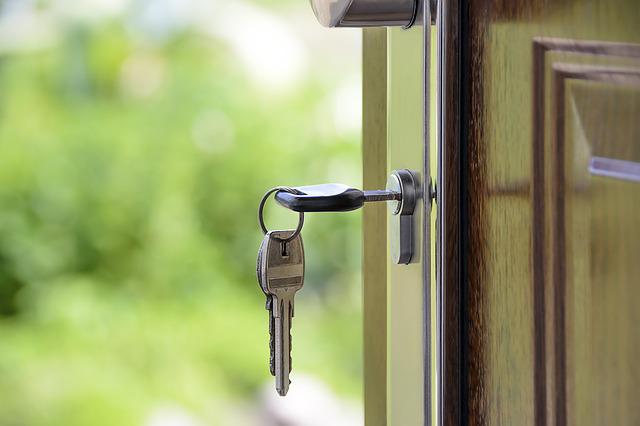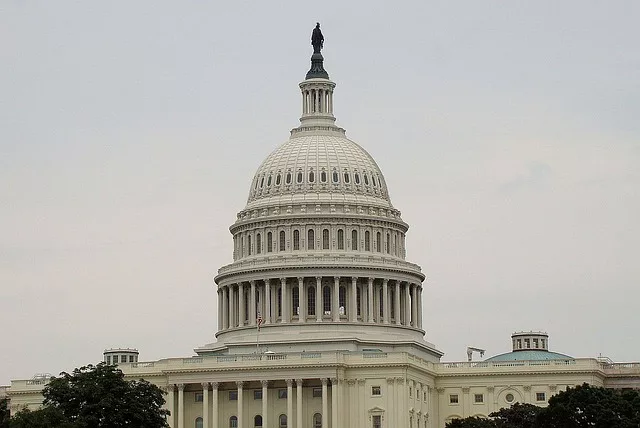VA Home Loans vs. Other Mortgage Options

The VA home loan is an important military benefit. The ability to apply for a mortgage with no down payment and no VA-required mortgage insurance premiums are two major financial incentives to choose a VA mortgage. But how do VA loans compare with other types of mortgage loans?
When comparing government loan programs such as VA, FHA, and USDA, certain features are common. A low or no-down payment option (depending on the loan program) could help new borrowers save more upfront on the loan than some conventional equivalents. But some alternatives to the VA home loan may cost more because of costs like mortgage insurance premiums.
VA Mortgages Versus USDA Home Loans
The similarities between these two programs are important. Both feature zero-down home loan options, and both are government-backed mortgages with potentially lower interest rates than some conventional equivalents. With two government loan programs offering no-money-down options, why doesn’t everyone consider a USDA loan? There’s no military service requirement for USDA which on the surface seems to make it far more accessible.
But USDA loans are typically approved for low-to-moderate-income borrowers and offered to those who meet household income limits (unlike VA and FHA mortgages, you can actually earn too much to qualify for a USDA home loan.
USDA loan guidelines include certain exceptions to household income limits (depending on a number of variables) if you purchase property in a targeted area. Like VA mortgages, USDA loans require occupancy; unlike VA mortgages, you may be limited in your ability to rent out unused living units in your home depending on the nature of your USDA loan.
Rules for Occupancy, Rentals
VA loans have no restrictions on you renting out an unused unit on the property you buy with the VA mortgage. But you must be an owner-occupier in typical cases. VA loan rules for refinancing these properties may vary when it comes to occupancy. Ask a participating lender about these rental issues and what the terms of your legally binding purchase contract commit you to.
USDA loans come with many of the same options as VA mortgages; you can apply for a home loan to buy new construction or existing construction homes. Both programs allow you to consider housing options like condo units, planned unit developments or PUDs, You can also purchase a modular or manufactured home using a VA or USDA mortgage.
Loan Fees
FHA loans don’t feature an exact equivalent of the VA Loan Funding Fee, but you will be expected to pay an FHA loan origination fee and an Up-Front Mortgage Insurance Premium. Unlike VA mortgages, FHA loans do not require you to apply for a Certificate of Eligibility, but you will be required to verify a minimum amount of time as an employed person. Two years is typical, but your lender will tell you what the specific requirements are.
Get a free, no-obligation consultation regarding your VA Loan!
VA Mortgages Versus FHA Home Loans
FHA loans, like VA mortgages, are government-backed home loans with potentially lower interest rates than some conventional equivalents. FHA loans do not have a zero-down option, which puts them at a big disadvantage compared to the VA loan program.
To qualify for an FHA mortgage you will be required to make a minimum 3.5% down payment and unlike VA loans you are required to carry mortgage insurance for either 11 years or the lifetime of the FHA home loan, depending on your loan-to-value ratio and other factors. VA mortgages have no VA-required mortgage insurance guidelines.
Both VA and FHA mortgages allow you to apply for an add-on to the loan called an Energy-Efficient Mortgage or EEM package. This provides extra loan funds for approved upgrades and improvements that create a more energy-efficient home. For both VA and FHA mortgages, you may be required to hire an energy consultant, and the loan funds can only be used for their intended purpose, no unrestricted cash back to the borrower is allowed with VA or FHA EEMs.
Occupancy Rules And Property Types
VA and FHA loans are similar in many ways including occupancy requirements. You will be required to use the home you buy with an FHA mortgage as your primary residence. Both VA and FHA mortgages allow the purchase of properties with one to four living units. You can buy condo units, townhomes, duplexes, multi-unit homes, and even farm residences (the residence only, not a farm business) with VA and FHA loans.
VA and FHA loans both allow you to purchase mobile homes, manufactured housing, or modular homes. Both programs have specific requirements for these homes including the need for a permanent foundation. No property can be purchased with VA or FHA loans that do not meet the foundation requirement, and you cannot purchase something like an RV or houseboat that cannot be legally classified as real property.
VA Loans Compared To Conventional Mortgages
Up to this point, we’ve compared government loan programs to each other. But how does the VA loan program match up to conventional mortgages? For starters, there is no single boilerplate conventional mortgage, so a broad comparison can be helpful but you will need to know the terms and conditions of a specific conventional loan for a more accurate comparison.
For example, did you know that many conventional lenders will offer home loans without an occupancy requirement? That’s not true of FHA, USDA, or even VA mortgages. You can get a conventional loan for a residence or an investment property. The investment option is not available with a VA mortgage.
There is generally no such thing as a no-money-down conventional mortgage; in order to avoid having to pay a mortgage insurance premium, you are typically required to pay 20% down or more. That 20% rule is one reason why some have a misconception that you are required to pay 20% down on a conventional loan. It’s not required UNLESS you don’t want mortgage insurance.
Fannie Mae and Freddie Mac Home Loans Vs. VA Mortgages
The Freddie Mac home loan program Home Possible offers a low-down payment conventional alternative to government-backed mortgages like VA loans. The same is true of Fannie Mae Home Ready and related products. There are more forgiving FICO score requirements for these loans and some borrowers may qualify for a waiver of “risk-based pricing” with these Fannie/Freddie loans.
However, when compared to VA mortgages, the VA loan program’s no-money-down option, combined with a lack of VA-required mortgage insurance premiums is still one of the strongest incentives to use a VA mortgage over a Fannie or Freddie mortgage.
Fannie Mae and Freddie Mac low-down payment loans require mortgage insurance and unlike the VA loan program some of those Fannie/Freddie options have income caps as they are intended for low to moderate-income applicants.
Zero-Down Conventional Home Loans?
There is one circumstance where you could have an option for a zero-down conventional mortgage; if you are looking for a construction loan to build a home instead of buying an existing property you may be able to use land equity in place of a down payment. Naturally, this applies to those building a home on land they already own, not land they must purchase in conjunction with the mortgage.
VA loans are different from conventional mortgages in some important ways. There is something called the VA Loan Escape Clause, which requires lenders and sellers to abide by rules about the valuation of the home. If the appraised value comes in lower than the sale price the borrower can walk away from the deal without penalty. That includes earnest money–you cannot be required to forfeit earnest money on a VA mortgage in such cases.
Other Issues
Another difference; VA loans do not allow a penalty for early payoff of the loan or for paying more than your monthly mortgage payment minimum. You cannot be charged simply for paying off early, which makes refinancing your mortgage cheaper. It also protects you from a potentially larger final payment when the time comes.
Conventional loan fees and charges will vary greatly; VA mortgages allow certain lender fees to be passed on to the borrower. Unlike some conventional loans, there are VA guidelines about such fees. Some can never be charged to the borrower, and the way certain fees are charged is also regulated under the VA home loan program. Your participating VA lender cannot charge you more than the actual cost of pulling your credit report, for example. You cannot be charged for the lender’s legal counsel, and you cannot be charged duplicate fees for a single service.
When comparing loan options, it’s important to ask many questions. Don’t commit to a loan you do not fully understand, and don’t use a lender who seems evasive or won’t answer direct questions.
>> Get a free, no-obligation consultation regarding your VA Loan! Get started today!
RELATED:
- VA Loan Limits
- Best Practices for the VA Loan Process
- VA Loan: Can You Borrow More Than Your House is Worth?
- VA Loan Basics
About the author
Editor-in-Chief Joe Wallace is a 13-year veteran of the United States Air Force and a former reporter/editor for Air Force Television News and the Pentagon Channel. His freelance work includes contract work for Motorola, VALoans.com, and Credit Karma. He is co-founder of Dim Art House in Springfield, Illinois, and spends his non-writing time as an abstract painter, independent publisher, and occasional filmmaker.


